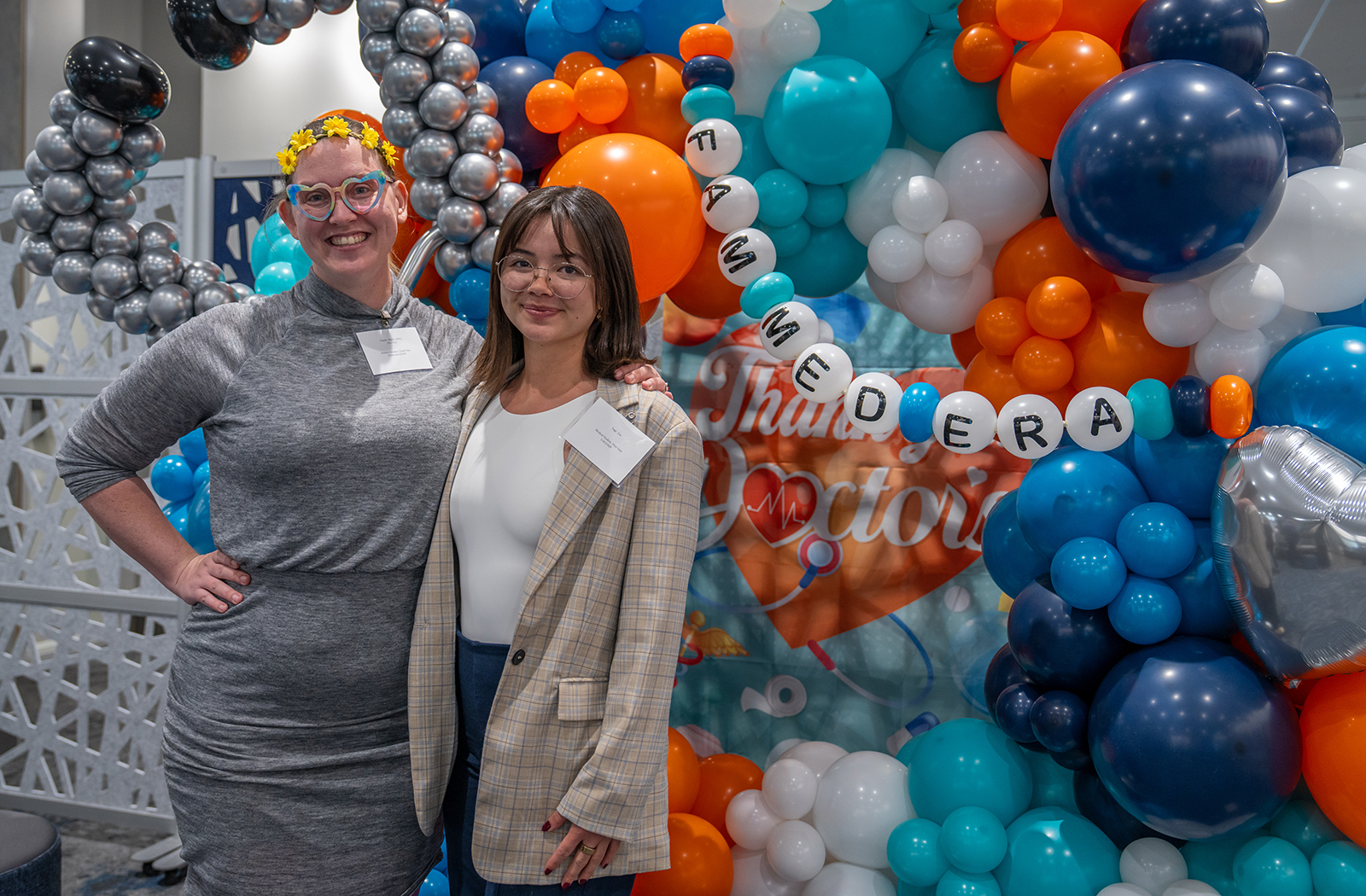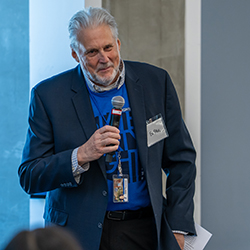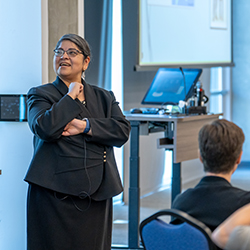
Arizona Academic Family Medicine Innovation Conference Showcased Innovations and Goals for Improving Primary Care in Arizona

Gathering medical professionals, educators, researchers and students, the third annual Arizona Academic Family Medicine Innovation Conference (AAFMIC) — hosted at Creighton University — sought to advance family medicine through research, collaboration and innovation.
Ed Paul, MD, chairman of the Department of Family Medicine at St. Joseph’s Hospital and Medical Center, and Sharry Veres, MD, chair of Family Community and Preventive Medicine at the college, gave context for the conference’s purpose and the state of Arizona’s health care workforce.

“According to the data, Arizona is ranked 31st in the United States in total active physicians based on per 100,000 people,” Dr. Paul said. “The rural side of our state, as with many states, is much worse in terms of numbers.”
Both physicians discussed methods of addressing the physician shortage in Arizona — including big investments like developing family medicine programs in rural areas. And Dr. Veres emphasized the importance of strategizing how those programs would be expanded, outside of simply increasing the number of residency spots.
“If we double the number of family medicine residencies and we put students in, are we going to get anywhere close to solving the physician shortage?” Dr. Veres asked. “Don’t just give us funding for more primary care training. Give us the funding to start tracking all of these outcomes because we need to do better than flying blind with dollars.”
Nancy Pandhi, MD, MPH, PhD, a physician-scientist and leader of the Clinical Translational Sciences Award from the University of New Mexico, served as the keynote speaker for the event.
“Stories are fundamental to how we think of ourselves and how we operate,” Dr. Pandhi said. “Hearing other stories is perhaps, as clinicians, something that we’re excited about. We hear our patient’s stories, we hear stories from our families, and they give us a sense of identity.”
Dr. Pandhi shared how her parents immigrated from India to the United States in the 1970s and the cultural differences they faced within the health care system — such as prenatal care and dietary advice.

Her mother developed a skepticism of the health care system and passed away from cancer at a young age. Dr. Pandhi noted how our culture, attitudes and beliefs really shape how people approach clinicians.
Much of Dr. Pandhi’s presentation revolved around the interpersonal relationship of physicians and patients and developing trust between the two, which could lead to the improved health of patients.
“One of the principles of primary care is the idea of first contact access where you have somebody that you can go to when you need access to care,” Dr. Pandhi said. “It’s really important to have this first contact access so you get gains in preventative care — such as getting your cholesterol checked or mammograms.”
Following the keynote presentation, attendees were allowed time to view poster presentations from medical students and residents from across the Phoenix valley. During lunch, the conference also hosted the Arizona Academy of Family Physicians Resident Awards.
Leah Hillier, MD, assistant clinical professor for the University of Arizona College of Medicine – Phoenix’s Department of Family, Community and Preventive Medicine, helped organize the event and provided an introduction for the conference.
In addition, medical students and residents from various Phoenix-area medical schools gave oral presentations on topics such as food insecurity, movement disorders and endometriosis. The event concluded with a panel discussion about how to make scholarship a part of a family medicine career.
About the College
Founded in 2007, the University of Arizona College of Medicine – Phoenix inspires and trains exemplary physicians, scientists and leaders to advance its core missions in education, research, clinical care and service to communities across Arizona. The college’s strength lies in our collaborations and partnerships with clinical affiliates, community organizations and industry sponsors. With our primary affiliate, Banner Health, we are recognized as the premier academic medical center in Phoenix. As an anchor institution of the Phoenix Bioscience Core, the college is home to signature research programs in neurosciences, cardiopulmonary diseases, immunology, informatics and metabolism. These focus areas uniquely position us to drive biomedical research and bolster economic development in the region.
As an urban institution with strong roots in rural and tribal health, the college has graduated more than 1,000 physicians and matriculates 130 students each year. Greater than 60% of matriculating students are from Arizona and many continue training at our GME sponsored residency programs, ultimately pursuing local academic and community-based opportunities. While our traditional four-year program continues to thrive, we will launch our recently approved accelerated three-year medical student curriculum with exclusive focus on primary care. This program is designed to further enhance workforce retention needs across Arizona.
The college has embarked on our strategic plan for 2025 to 2030. Learn more.